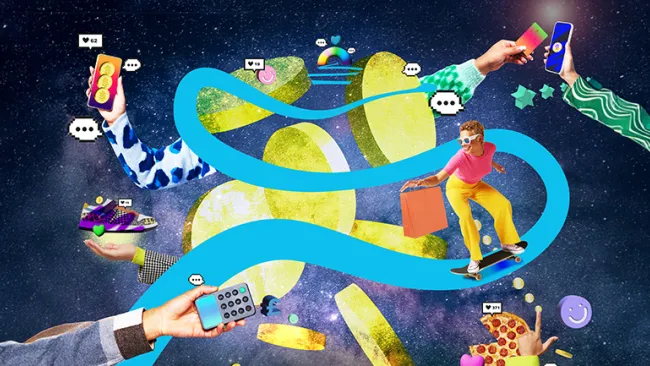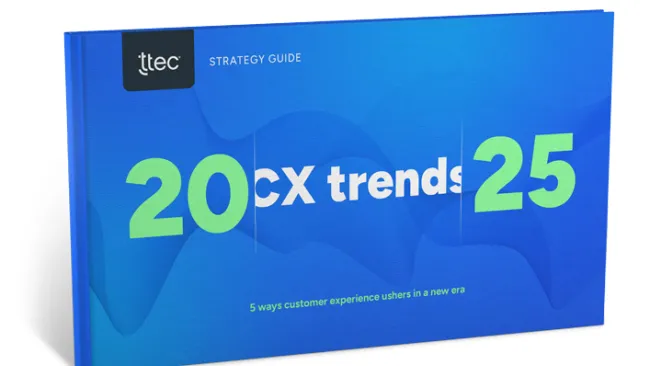Startups have reimagined the status quo by meeting today’s digital-first expectations. It’s an exciting time to shake up traditional markets. But first you must get there.
Many startups are still in their infancy, yet they won’t be for long. These hypergrowth businesses, especially the smaller ones, are moving extremely quickly to become the next unicorn. In addition, their industries are changing rapidly, requiring them to pivot quickly and continuously.
However they excel in product and market innovation, many hypergrowth firms lack sophistication when it comes to systems, tools, and processes to scale customer experiences alongside the business in areas such as CRM, workforce management, and QA. Typically, they have customer service desks run by first-time managers who do not have extensive experience managing large customer care teams. These leaders often need help determining the right tools, capabilities, and ideas to grow support operations without taking on too much cost.
For over a decade I’ve represented several startups’ first-time outsourcing experiences. For an organization to nurture its growing customer service business, it needs to understand the human element first. Here are three tips I recommend for fast-moving hypergrowth companies to scale their customer support operations.
Tip 1: Find the right CX partner
Startups, especially in their early days, are often run by true believers in the company. Those first employees believe passionately in the company’s mission and what they are trying to disrupt, and they want to work with partners who will share in their passion.
These companies are run by teams not constrained by red tape or preconceived ideas, and they have people who are truly empowered to not only decide on something but to implement it quickly. They value agility, flexibility, and creativity above everything.
Therefore, they need people and partners around them who possess a real devotion for the work along with a can-do attitude. In the early years, it is imperative that many startups maintain the ability to do more with less, as many can be cash constrained in the beginning.
Look for an outsourcing partner who can be flexible. One who can start small with you and scale quickly. Often larger outsourcers will be focused on hundreds of seats, when in reality the actual need is much smaller and less defined for startups.
Leaders need to find a partner who is willing to start small and is open to learning alongside them, as well as guiding them with knowledge attained from previous work for similar companies with similar challenges. Just as the startup is quick and agile, your partner needs to be nimble enough to move as the program morphs and evolves.
In short, they need to be able to move quickly as things break, as they surely will, but also be able to scale quickly when things take off. I stress to my team that if you can be successful with startups on smaller and more challenging programs, you will build fundamental
trust as everyone grows.
Tip 2: Begin with empathy
One of the strengths of emerging startups is their ability to move quickly, including testing out new concepts such as evolving support channels. The ability to communicate with an evolving userbase through newer channels such as messaging, SMS, and other omnichannel components, including social media, is extremely important.
Empathy, however, is probably the most overlooked aspect of their support. At the end of the day training your customer care associates on new platforms or technology is easy, but it’s the empathy with the end user that is much more challenging to train. Too often many leaders rush ahead and think about the technology first and forget the humanity: humans supporting humans.
Uncaring associates can be just as damaging as faulty programming. A bad customer experience can end a relationship, no matter how neat and cool the product or service is.
It’s good to remember that it’s humans who are doing the buying, not robots. If you’re smart enough you can leverage empathy with technology to create genuine and efficient connections with your customers. The more motivated and communicative your customer service team is, the more customers will see themselves as valued. This can often lead to more forgiveness when an experience does not go as planned.
Tip 3: Hire right
Training people to care is difficult. That’s why empathy needs to start with the hiring process. I often say that the best customer support colleagues would be social workers because they realize how to connect with people and their careers are built around empathy.
When you are recruiting associates with your partner, look for those who have had relevant life experiences to your product and can put themselves in the customers shoes. Finding those who share interests and passions for your brand will naturally make them better associates. If you’re running a direct-to-consumer food startup, for example, recruit those who understand the stress and anxieties of first-time chefs dealing with new recipes. Recruit passionate foodies who can share those moments of joy with customers.
Take an active role in finding associates who value the work. If they value the work, they’ll be proud of their product and care about the end user. This reminds me of a gaming company we’ve worked with. Originating in a small town, they were concerned they could not find the right associates for the job. And given the complexity of the gaming hardware and peripherals they created, it was essential to have experts available for higher tier customer support. What we thought was that we had to hire people with a strong technical background and focus on soft skills later. It turned out just the opposite. The technology was easy to train, but it was much more difficult to train someone to care. As the program scaled, we had to rethink the hiring profile to find noteworthy associates. Instead of focusing on the technology, we looked for associates who not only cared about their work but also the person on the other end of the phone, email, or chat. Empathy is a true skill that all companies should hire for first and foremost.
CX expertise matters to hypergrowth success
In their early years, startups and disruptors face many challenges. The more flexible, nimble, and creative an outsourcer is, the more essential they become in helping these companies succeed and reach their next step in their evolution. By matching these companies at the speed they work, yet also bringing new ideas and learning and capabilities to the table, the right outsourcer can often make or break the early years of a pre-unicorn disruptor.

















